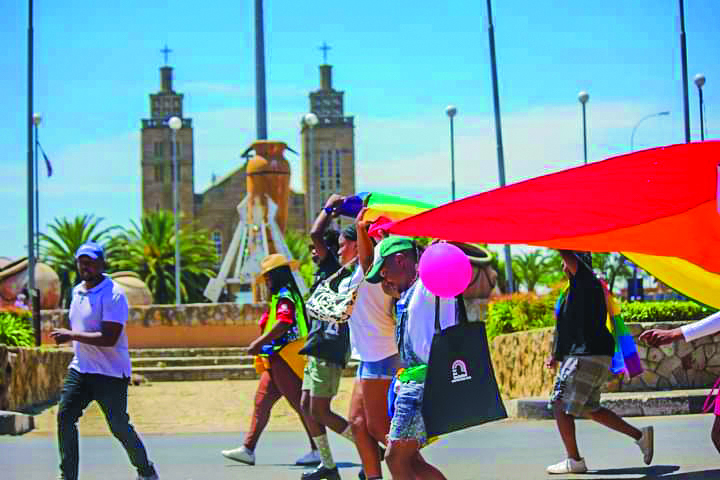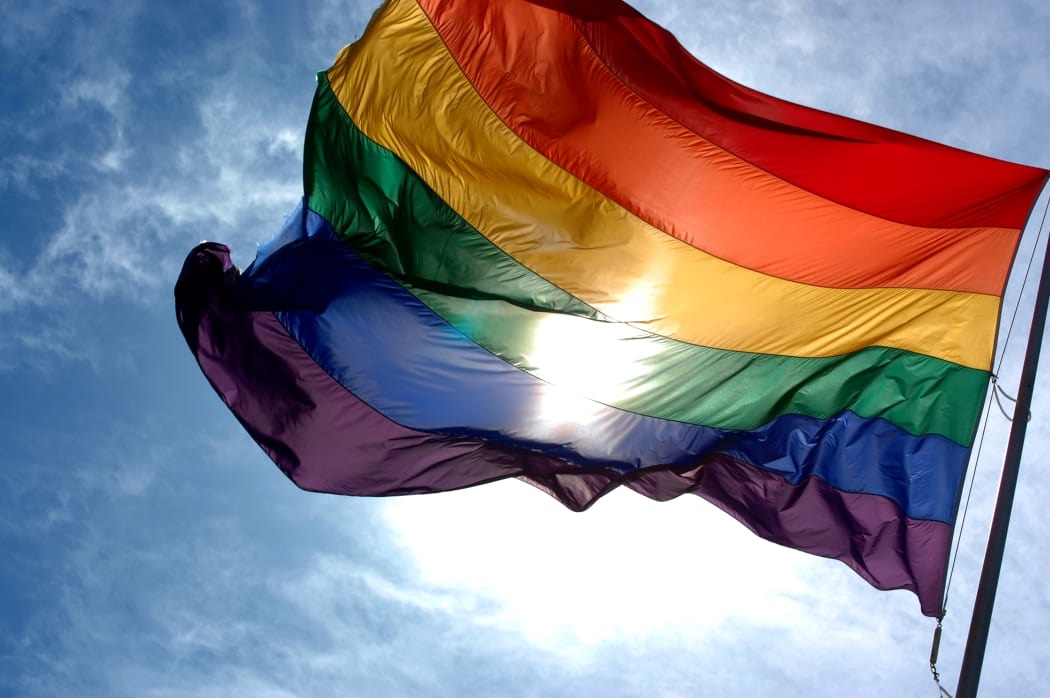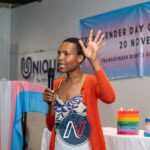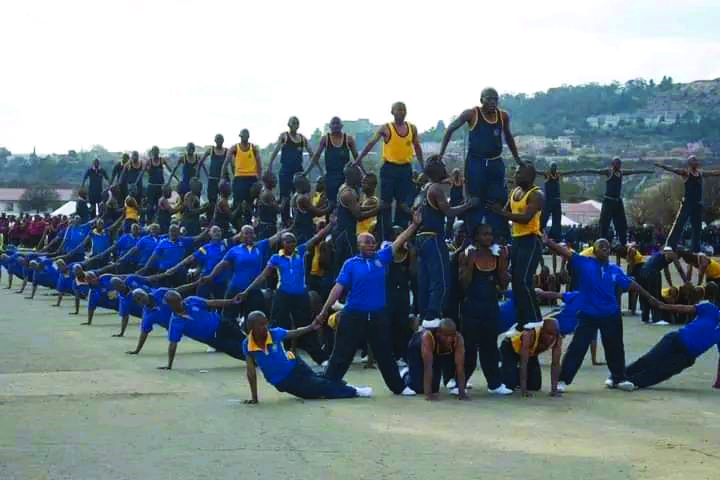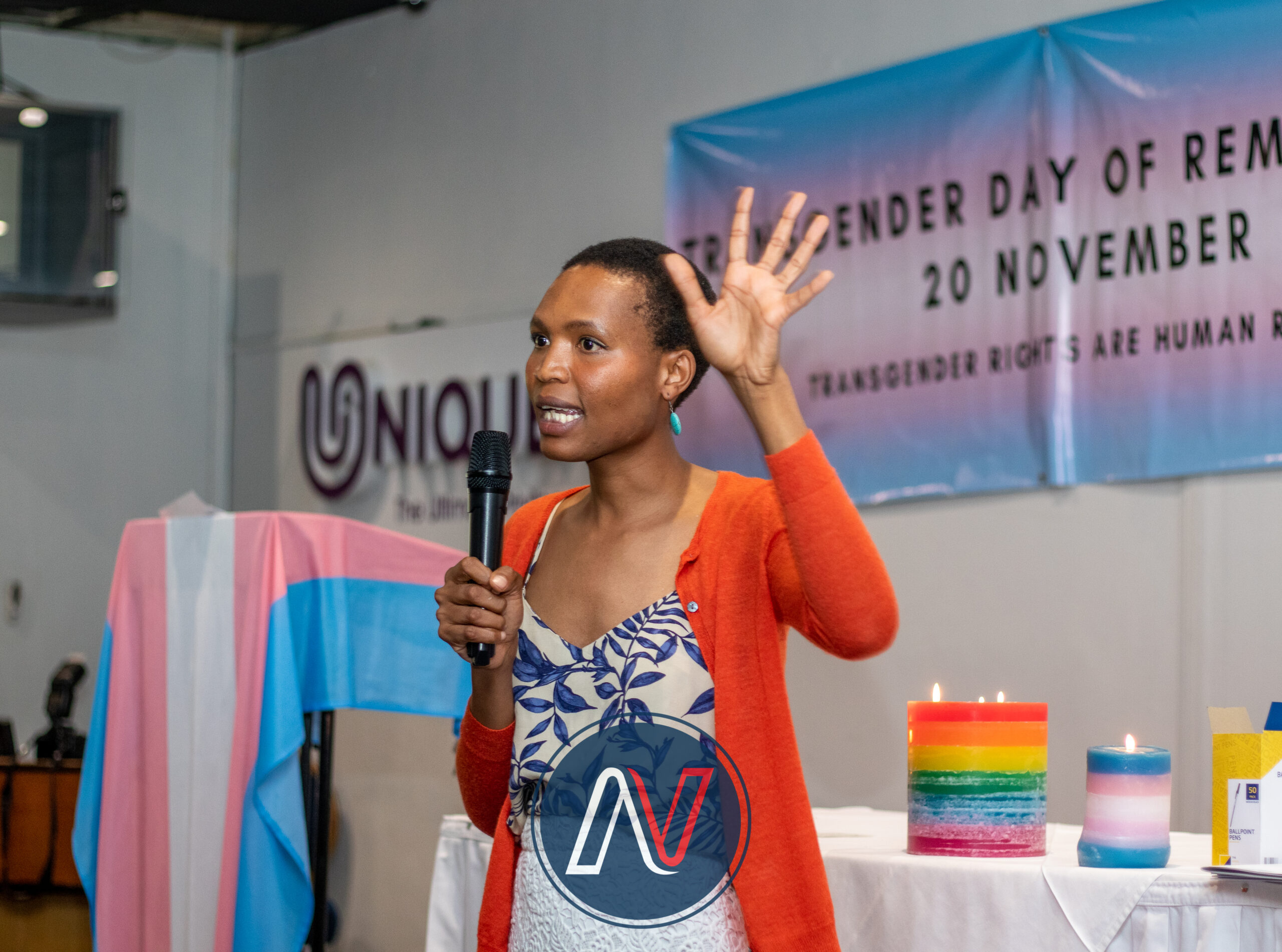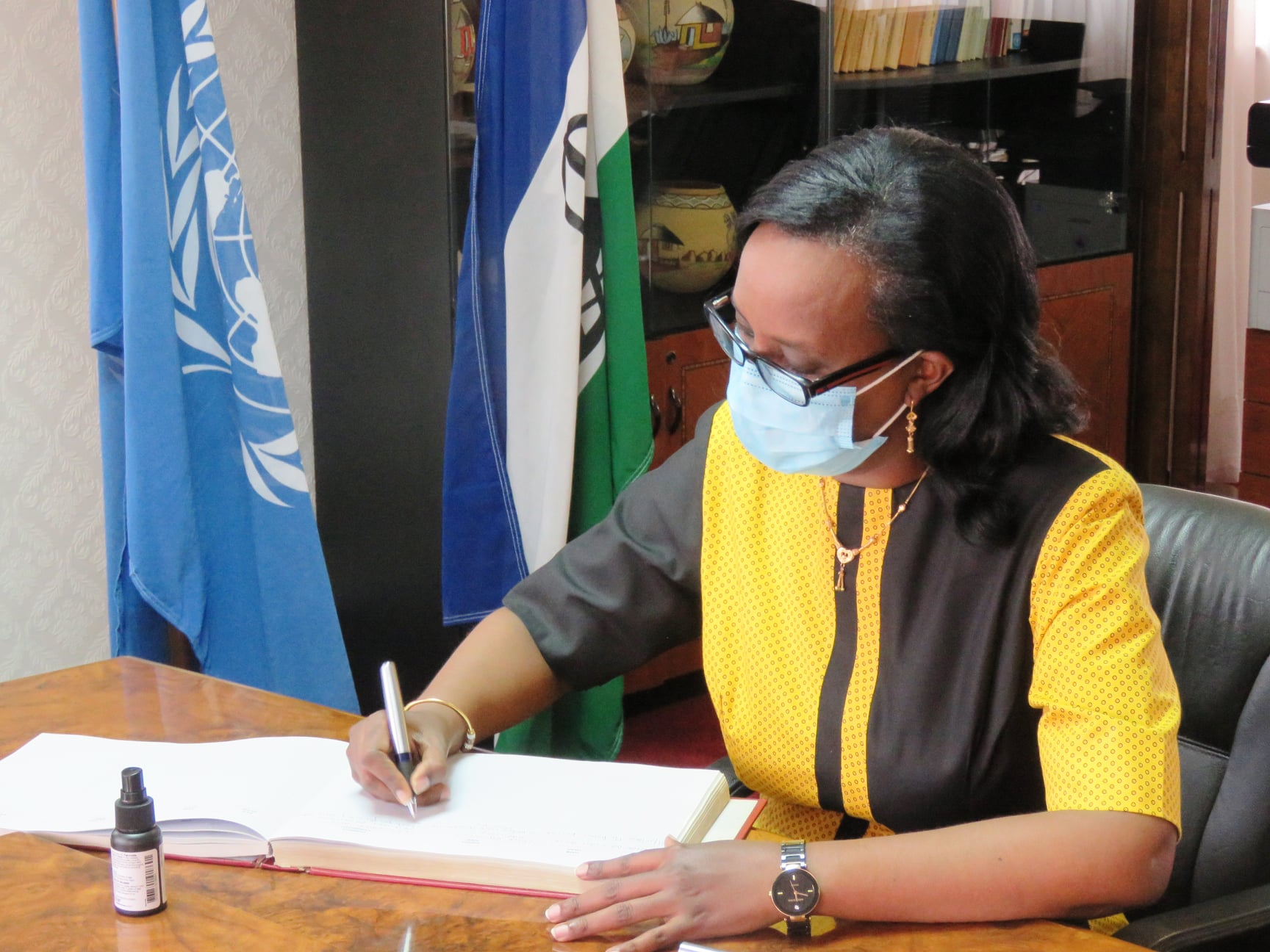- Advocates for adults to change their assigned sex at birth to align with their self-determined gender.
- Recommends inclusive gender marker options beyond the binary of male and female in identity documents.
Ntsoaki Motaung
The Parliament should amend the Sexual Offences Act to explicitly repeal the common law offence of sodomy and remove the provision in Schedule I, Part II of the Criminal Procedure and Evidence Act of 1981 that lists sodomy as an offence.
Additionally, it should amend section 22 of the Registration of Births and Deaths Act, which addresses the “change of sex of a child,” to include provisions allowing adults to change their assigned sex at birth to their self-determined gender in the birth register.
Parliament should also amend section 12 of the National Identity Cards Act to include the “gender of the bearer” in identity documents and provide gender marker options beyond the binary framework of “male” and “female.”
These recommendations, among others, were made by the International Commission of Jurists (ICJ) in its recent briefing paper, They See Us as How We Have Sex, Not as Who We Are, published in November 2024.
Composed of 60 distinguished judges and lawyers from around the world, the ICJ promotes and protects human rights through the Rule of Law by leveraging its unique legal expertise to develop and strengthen national and international justice systems.
Established in 1952 and active on five continents, the ICJ works to advance the progressive development and implementation of international human rights and humanitarian law, safeguard civil, cultural, economic, political, and social rights, uphold the separation of powers, and ensure the independence of the judiciary and legal profession.
Its November 2024 briefing paper uncovers and analyses the predicaments that LGBTIQ+ persons may and do encounter when navigating the justice system in Lesotho.
Significantly, according to the paper, LGBTIQ+ persons in Lesotho are subjected to many different forms of prohibited discrimination, including structural barriers to exercising their human rights, as well as harassment and abuse because of their real or imputed sexual orientation, gender identity, gender expression or sex characteristics (SOGIE-SC).
It reads: “Discriminatory, heteronormative and patriarchal societal norms in Lesotho have led to stigmatisation, social and economic exclusion, violence and abuse against LGBTIQ+ persons, as well as the many human rights abuses they may experience when attempting to access justice when their rights have been violated.
In light of these observations, ICJ also recommended that the parliament should explicitly include SOGIE-SC as prohibited grounds for discrimination under section 18 of the Constitution.
It should also provide clear guidelines for the implementation of the Registration of Births and Deaths Act and National Identity Cards Act to ensure that gender markers in identification documents accurately reflect the bearer’s self-determined gender identity.
“Conduct a comprehensive review of all laws and policies in the country to ensure that they explicitly affirm and protect the human rights of LGBTIQ+ persons, including the right to equality and equal protection before the law,” ICJ said.
“The legislature and relevant government departments such as the Ministry of Law and Justice should conduct this review in consultation with civil society organisations, lawyers, LGBTIQ+ persons and other stakeholders advocating for the human rights of LGBTIQ+ persons,” it added.
The judiciary is also urged to take action.
ICJ said that in a similar manner to the rules created in 2023 for enhancing access to justice for persons with disabilities, the relevant authority within the judiciary could develop judicial rules and guidelines for enhancing the ability of LGBTIQ+ individuals to navigate courts and ensure sensitivity in court proceedings.
It indicated that these rules should be created in collaboration with NGOs advocating for the rights of LGBTIQ+ persons, legal experts, the Ministry of Law and Justice, and relevant judicial bodies.
“These guidelines should address issues such as sexual orientation, gender identity, gender expression, sex characteristics, gender markers, attire at courts, and sensitivity to the needs of LGBTIQ+ persons in court proceedings,” it said.
Further, it recommended that the judiciary should continue sensitisation of public prosecutors, court administration staff, court security staff, court researchers and judicial officers on the rights of LGBTIQ+ persons with respect to a range of issues.
ICJ mentioned that given the success of previous engagements with the Lesotho judiciary on the rights of LGBTIQ+ persons that have been led by non-governmental and civil society organisations, such as the ICJ and People’s Matrix, the judiciary should aim to conduct, or collaborate with these organisations, human rights experts and the relevant government ministries, to conduct sensitisation workshops targeting not only judges and magistrates, but also court administrators and prosecutors.
The workshops should cover, in detail, the obstacles impeding access to judicial services for LGBTIQ+ persons, sensitivity to issues of sexual orientation, gender identity, gender expression and sex characteristics of LGBTIQ+ individuals, including through manner of dressing, and impartiality and the independence of judges in judicial proceedings.
The workshops should also cover in detail, respectful treatment of LGBTIQ+ individuals by adjudicators and court administration staff throughout judicial proceedings and providing equal access to justice without discrimination, identifying cases that may have a SOGIE-SC-bias element, and the implementation and use of the potential rules and guidelines to ensure that judges and court staff are not only knowledgeable about LGBTIQ+ issues but can promote fair and respectful treatment in the justice system.
The Ministry of Law and Justice is also urged to implement more effective awareness-raising initiatives about the human rights of LGBTIQ+ persons, addressing in particular access to justice barriers.
ICJ said: “To address widespread stigma and discriminatory attitudes towards LGBTIQ+ persons, it is imperative that the authorities, primarily through the Ministry of Law and Justice, fulfil their obligations to conduct awareness-raising activities and ongoing public education to foster acceptance of such persons.
It added: “Awareness-raising initiatives should generally cover human rights and issues related to sexual orientation, gender identity, gender expression and sex characteristics and the obstacles preventing LGBTIQ+ persons from accessing courts and effective remedies for violations of their human rights.
“In this regard, the relevant government departments should work with civil society organisations, the local media and development partners to carry out ongoing awareness-raising activities within community settings that are aimed at changing the general public’s attitudes towards LGBTIQ+ persons.”

Your Trusted Source for News and Insights in Lesotho!
At Newsday Media, we are passionate about delivering accurate, timely, and engaging news and multimedia content to our diverse audience. Founded with the vision of revolutionizing the media landscape in Lesotho, we have grown into a leading hybrid media company that blends traditional journalism with innovative digital platforms.


